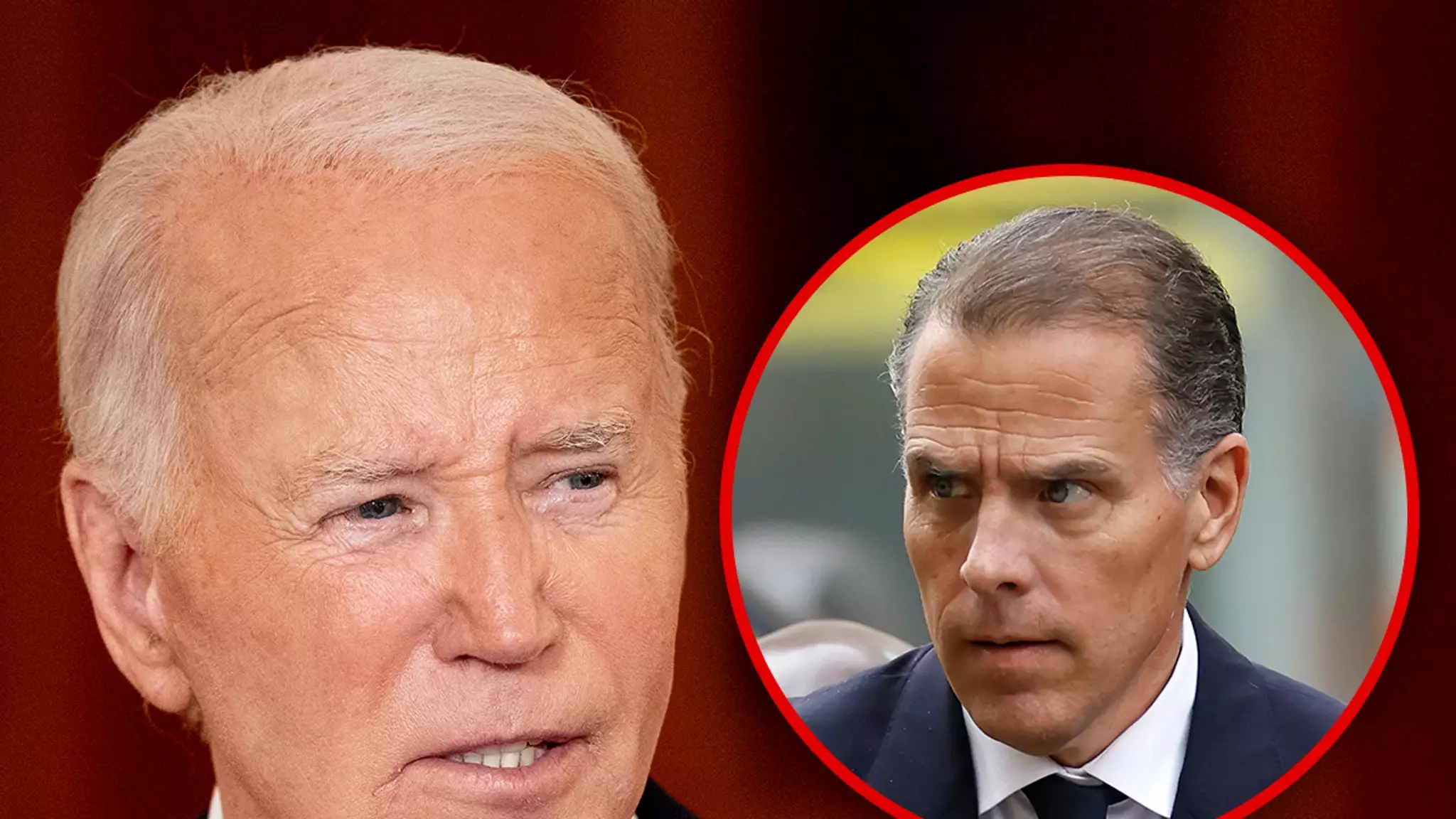The recent announcement by President Joe Biden regarding the pardon for his son, Hunter Biden, has ignited considerable debate and speculation about the true nature of this decision. Far from being an impulsive action, sources connected to the White House reveal that this move was well thought out and planned over three months. The significance of this development lies not only in the personal implications for the Biden family but also in the broader context of how political ties often intersect with legal proceedings.
Hunter Biden’s legal troubles began escalating after a judge rejected a plea deal in June 2022, leaving him exposed to severe consequences for three gun-related charges. This marked a crucial turning point for President Biden, who reportedly felt “agitated” by the handling of his son’s case, perceiving Hunter as a political pawn in a much larger game. Such a sentiment is common among individuals embroiled in legal battles, particularly when they believe external forces are manipulating the judicial system for political ends.
What adds complexity to this story is the puzzling decision Hunter made to enter a guilty plea in September for tax-related charges, even when his legal team believed they could win a trial. This raises questions about the strategic considerations at play. Was the plea taken to preempt any harsher legal consequences in exchange for a more lenient resolution?
Sources assert that Hunter surged ahead with this plea knowing that a pardon from his father was in the offing. This reveals a calculated interaction between personal legal strategy and familial support. The journalism surrounding the case emphasizes how entwined Hunter’s fate became with political perceptions and familial loyalty, both of which can heavily influence judicial outcomes.
President Biden’s justification for pardoning Hunter centers on the argument of unequal treatment in the judicial system, claiming that other offenders with similar charges often receive non-criminal resolutions. This line of reasoning posits that Hunter’s predicament was exacerbated solely because he is the son of a sitting president. The notion that political lineage could shape legal outcomes is controversial and feeds into broader discussions about privilege and accountability in the justice system.
Critics argue that this pardon undermines the rule of law, suggesting that Hunter’s connection to the president shields him from facing the consequences that an average citizen would endure. Moreover, President Biden’s previous promise not to intercede in Hunter’s legal challenges raises ethical questions regarding the genuine separation of personal and political realms.
The pardon of Hunter Biden serves as a significant moment in America’s ongoing dialogue about crime, politics, and family. It illuminates the intricate web of legal strategies, personal emotions, and political narratives that shape such cases. While the decision may have provided relief for the Biden family, it also sets a potentially controversial precedent, leaving citizens to ponder whether justice is available equally to all, regardless of personal connections. How these dynamics will unfold in future cases remains to be seen, but one thing is clear: the blending of personal and political narratives will continue to be a critical focus in analyzing American justice.

